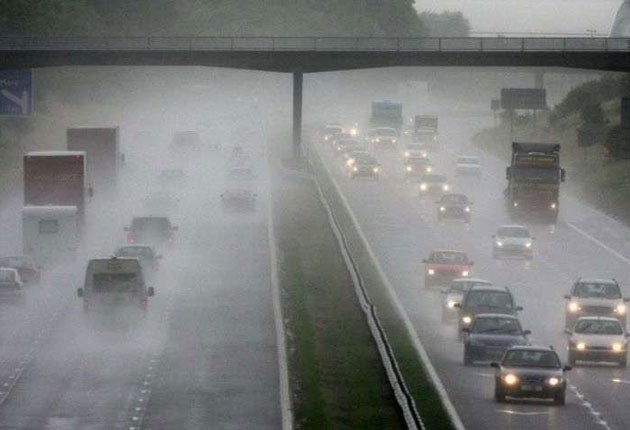You can't move for incentives from insurers
Many policies now dangle cashback of up to £50, but will the cover itself be the right price? Kate Hughes reports

Insurance providers have long tried to tempt us with incentives to take out their cover, and as the credit crunch has made us more money-conscious so cashback offers have been coming in thick and fast. The idea is that providers get your long-term custom in return for a few pounds upfront, but are these deals worth the money?
The latest entrant to the incentive game is Tesco, which last week unveiled a £50 cashback deal on a year's car insurance for Clubcard loyalty scheme members. Other forms of insurance are getting in on the act too. Take a buildings and contents policy with the Halifax, for example, and you could earn £50 initially and £50 every year you renew the policy. Pet insurance from LV= offers £10 cashback.
In practice, you pay the full premium price upfront and then receive a cheque after a few weeks or months. But the risk is that the cashback could blind customers as to whether the policy itself is competitive.
"Overall, cashback can be a great perk when buying insurance, but it shouldn't be at the expense of getting the best price and cover that meets your needs," says Martin Saville at consumer watchdog Which?
"A £50 cashback isn't worth going for if the premium itself is, say, £100 more expensive than a competitor's quote for the same cover offering no cashback."
"Don't let these offers detract from the basic criteria you need in your policy," agrees Tom Wilson of price-comparison site Confused.com. "Cashback is only ever going to be worth it if the rate is a good one and it fulfils all your basic needs. It should be a nice bonus, not the main reason for choosing a particular policy."
The cheapest non-cashback deal on car insurance currently available, for the average driver with a Vauxhall Vectra V6, is from LV= at £155.37, or £14.73 a month, says price-comparison site Moneysupermarket.com. But it's a no-frills deal for that price; legal cover, a courtesy car and breakdown cover will cost an extra £61.80 in total.
Swinton's deal is £161.47 with up to £50 cashback if you go via a price- comparison site, taking the basic cost of the policy down to a bargain £111.47. It includes a courtesy car, but adding breakdown cover will set you back another £82, and legal and personal accident cover will add further costs.
The most comprehensive cover with cashback costs £231.31 with Endsleigh, or £21.61 a month. That includes legal cover, a courtesy car, personal accident insurance and windscreen cover, along with £30 cashback, bringing the total bill down to £201.31.
If you are shopping through a price- comparison site, where you are most likely to find cashback offers, you need to keep a close eye on the process. "Insurers may offer cashback of, say, £35 on policies bought through these sites," says Mr Saville. "But if you then decide to take out the cover directly with the insurer, check you're still getting the cashback before you sign up. Alternatively, an insurer may offer cashback if you buy direct, but not if you use a price-comparison site. And bear in mind that if you cancel the policy during the year, you'll probably have to repay the cashback."
Another option is to go through a third-party site like Cashback.co.uk, Quidco.com or Giveortake.com, which could make you more money. For example, home and contents insurance from Lloyds TSB could earn you as much as £75 .
And if the policy is bought using a credit card, you could also benefit from any cashback deal on the plastic. Abbey's credit card, for example, offers a blanket rate of 3 per cent on all transactions.
But bear in mind that the period between taking out your policy and receiving your cash can be as long as three months. This is usually done to dissuade customers from taking out the policy, then cancelling it as soon as they get the money.
The cash payment itself is generally automatic, but some providers demand that you actively claim the cashback yourself. The motive for this, critics suggest, is a hope that many customers will simply forget.
"This can be a real problem," Mr Wilson notes. "Some offers need customers to be diligent to get the money." In fact, following enquiries from The Independent on Sunday, Moneysupermarket has now introduced a policy of only recommending deals that have automatic cashback.
Cashback could also be a false economy in other ways, because the chances are we would spend the money instead of putting it against the cost of the insurance. "We are all human," says Mr Wilson. "It's easy to look at this money and decide to spend it on yourself, especially as you won't receive that cash until later."
Subscribe to Independent Premium to bookmark this article
Want to bookmark your favourite articles and stories to read or reference later? Start your Independent Premium subscription today.

Join our commenting forum
Join thought-provoking conversations, follow other Independent readers and see their replies